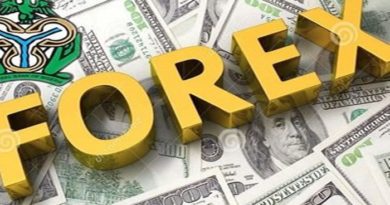KPMG faults Tinubu’s projection of 6% GDP growth, says not feasible
KPMG Nigeria said the economic projection of President Bola Tinubu to increase Nigeria’s Gross Domestic Product (GDP) growth rate by 6 per cent is not feasible.
This was disclosed on Friday in KPMG Flashnotes – Issue 8, which defended its statement by noting that Nigeria’s real GDP grew by about N17 trillion between 2010 and 2022.
But, KPMG said this would add N17 trillion to Nigeria’s economy within four years, adding that it is highly unlikely that Tinubu’s administration would be able to increase the GDP to N92.5 trillion in 2026 from N74.6 trillion in 2022.
It argued that if the country took 12 years to grow its economy by N17 trillion, Tinubu’s plan to achieve that within four years will be far-fetched considering Nigeria is facing a much more challenging macro environment.
KPMG said for Tinubu to achieve his economic growth plan, the government will have to ensure a 6% GDP growth consecutively for the next three years, starting from 2024, as the World Bank has projected that the country’s economic growth for 2023 would be 3%.
“The fact that Nigeria’s GDP will need to grow by at least 6% to generate enough jobs to absorb labor market growth (about 4% per annum) and reduce poverty is well understood by President Tinubu’s Administration.
“The president, during his inauguration speech, had set a target to increase the GDP growth rate of the country by 6% on average in the next 4 years through budgetary reforms aimed at stimulating the real sector of the economy.
“However, we are of the opinion that this might be difficult to attain in four years. For example, the consensus among analysts is GDP growth in 2023 of between 2.7-3.2 %.
“GDP using the expenditure approach, is the cumulation of household and government consumption expenditure, private and public investment, and net exports which means the president will have to introduce policies and take decisions that will lead to growth across these variables. However, taking decisions in one variable can lead to a decline in another.
“For example, to grow government revenue to expand government consumption and investment, it might increase taxes and /or borrow from the private sector. However, increasing taxes can lower purchasing power and slow consumption expenditure growth.
“At the same time private investment may be curtailed as business earnings are squeezed from slowing demand, higher costs from higher taxes, and higher interest rates as government borrowing crowds out private-sector lending and then pushes rates up.”
KPMG added that the ability to maintain a fine and delicate balance across these variables will be important, adding “But where will the required 6% average growth needed to meet the president’s target come from?” KPMG wrote in the report.
It stated that the GDP projection of Tinubu is overly ambitious, adding that the most realistic economic growth under Tinubu would be 4% to 4.5%
“While we expect stronger year-on-year growth over the next few years, we are of the opinion that there is very limited space to attain a 6% average real growth rate in 4 years or an increase in real GDP by N17 trillion.
“We are of the opinion that an average GDP growth rate of between 4-4.5% at the best is more feasible in the next 4 years. Even this will require the country to get its policies right and keep consistent faith with macroeconomic reforms,” KPMG stressed.




